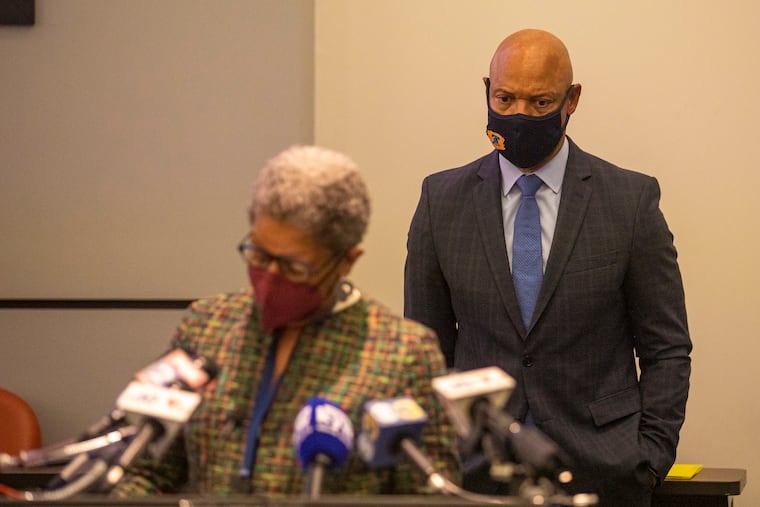Waiting for a new superintendent is the wrong approach to fixing Philly schools | Opinion
The City’s Home Rule Charter directs the Board to “communicate ... priorities, goals, policies, and accomplishments.” But the Board has yet to declare its own set of priorities for reform.

The Philadelphia Board of Education is winding down its search for a new superintendent as the 10-year tenure of Superintendent William R. Hite Jr. nears its end. The people of Philadelphia, naturally, are pinning their hopes on the promise of new leadership at the School District. But we face a dearth of leadership right now.
In meetings over the last few months, parents, students, educators, and community members have told the board what the priorities of the next administration must be: safe school buildings free of lead and asbestos; more counselors and behavior specialists to help students traumatized by gun violence and poverty; equitable funding and resources for all district schools; more support for teachers and staff in the aftermath of COVID-19; a fair high school admissions process.
But the next superintendent won’t take over until August. Those who teach and learn in public schools should not have to wait another six months for safe and healthy schools and for more equitable resources.
» READ MORE: Philly’s elite high schools have an equity problem. A controversial new admissions policy makes it worse. | Opinion
Will the board do something about any of the crises now plaguing district schools? The Inquirer spoke to some of the teachers who are leaving, regretfully, in the middle of the year. They are no longer able to deal with a lack of resources, overcrowded classrooms, over-testing and data collection, and the “nonsensical and punitive” administrative directives. What is the board going to do — now — to make sure schools won’t lose more dedicated and experienced teachers?
The Board of Education is the governing body of the School District of Philadelphia. It has the power to carry out the wishes of the people immediately, not six months from now. The board decides how to spend the district’s annual $3.2 billion budget. It has the final vote on all issues that determine the quality of education the city’s children receive. The board’s decisions, for example, on whether to close more neighborhood schools as part of its new Facilities Master Plan will affect communities across the city.
Board leadership has declared more than once since its 2018 reinstatement that it is the board’s job to “support” the administration. But this is backward: The administration’s responsibility is to carry out the vision of the board.
“The Board of Education must listen to its constituents, lay out its vision, and ensure that the new superintendent carries out that vision.”
The question is: What is this board’s vision? The city’s Home Rule Charter directs the board to “communicate to the public the Board’s priorities, goals, policies, and accomplishments.” But the board has yet to declare its own set of priorities for real reforms, such as restoring libraries in every school with Certified Teacher Librarians; reducing class size, starting with early grades; bringing back the paraprofessionals eliminated in the early years of this administration, including kindergarten aides and non-teaching assistants; and enacting comprehensive charter reform.
The Home Rule Charter also mandates that the board “consider the values and voice of all stakeholders.” That doesn’t mean just during special events such as the current superintendent search. The board continues to shut out community voices at its monthly action meetings by limiting the number of speakers, cutting speakers’ time from three minutes to two, and barring people from speaking at consecutive meetings.
In the flurry of activity around the superintendent search, it’s easy to forget that a board seat has been vacant since July. Neither Mayor Jim Kenney, who is responsible for selecting the board members, nor any member of City Council, which confirms them, has publicly mentioned filling the seat. When an elected official dies or can no longer hold public office, a special election is held so that constituents are not deprived of representation. Parents, students, educators, and community members — the constituents of the board — get no such consideration.
The city’s public schools need a strong superintendent, one who will run the district to serve the needs of the city’s children. But the Board of Education must listen to its constituents, lay out its vision, and ensure that the new superintendent carries out that vision.
Lisa Haver is a retired teacher and cofounder and coordinator of the Alliance for Philadelphia Public Schools. @APPSphilly